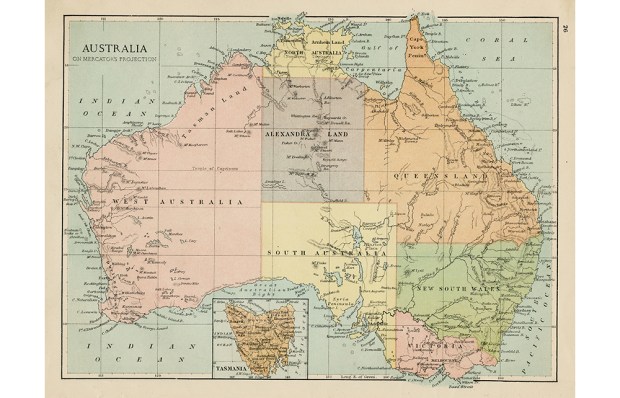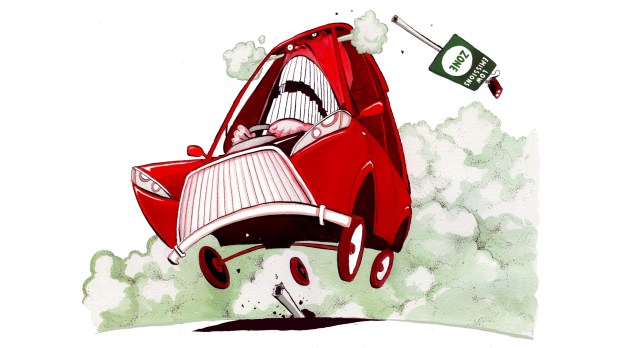The Law Commission has published a string of recommendations following its recent consultation on changes to hate-crime laws in England and Wales. As expected, the last one proposes that all existing hate-crime laws, as well as the new ones the commission would like to create, be swept up in a single Act of Parliament, much like the Hate Crime and Public Order (Scotland) Act. Readers will recall that this Act means freedom of expression is now in greater peril in Scotland than anywhere else in Europe.
In some respects, what the Commission is proposing isn’t as bad as the Scottish law. While it does recommend the scrapping of the ‘dwelling exception’, whereby people cannot be prosecuted for something they’ve said in a private home (one of the most controversial aspects of the Scottish Act), it suggests replacing it with a narrower ‘private conversation’ defence. It also proposes that various topics be ring-fenced so people cannot be prosecuted for expressing unfashionable opinions about them, including ‘cultural practices’, ‘policy relating to immigration, citizenship and asylum’ and the ‘view that sex is binary and immutable’. Finally, it recommends that journalists and broadcasters should not be prosecuted for ‘neutral reportage’ of other people’s unlawful speech.
No doubt these protections will deal with some of the concerns free speech campaigners have about the Scottish Hate Crime Act, particularly gender-critical feminists. But the problem is that specifying what subjects we are allowed to discuss freely in an Act of Parliament contravenes the common-law principle that we should be free to do whatever isn’t expressly forbidden by law. This is more like the Continental approach by which people are forbidden to do anything that isn’t explicitly permitted.
In other respects, the Law Commission wants to limit free speech further than in Scotland. At present, in order to be prosecuted for stirring up hatred against a ‘protected’ group, the Crown needs to prove you intended to do so, with the exception of stirring up racial hatred, where the threshold is lower. The Commission not only proposes to enlarge the number of ‘protected’ groups to include ‘sex and gender’, ‘disability’ and ‘trans-gender and gender identity’, but wants the lower prosecution threshold to be extended to all stirring-up offences.
Consequently, you could be sent to jail for using threatening or abusive words that are ‘likely to’ stir up hatred against women and minorities — look out Roy Chubby Brown — even if you didn’t intend to do so. All the Crown would need to show is that you ‘ought to have known’. The Scottish government initially intended to make the same change, but was forced to climb down. The fact that the Law Commission wants to venture into territory where even Nicola Sturgeon fears to tread is alarming.
Perhaps the most disappointing thing about these proposals is that they take it for granted that creating a two-tier criminal justice system by which members of certain groups are given special legal protections is an unalloyed good. The Commission cannot be held responsible for creating the concept of ‘hate crime’, whereby a criminal offence is punished more severely if the victim has a ‘protected’ characteristic, but it wants to embed it more securely in our criminal justice system by consolidating existing hate-crime laws in one place. And rather than question the rationale for designating some people as more deserving of additional legal safeguards than others, it endorses it by recommending those protections be extended to other victim groups.
The problem with such a two-tier system is it’s divisive. Those not lucky enough to possess a ‘protected’ characteristic will resent those who do. In the introduction to the summary of its recommendations, the Law Commission sets out the boilerplate case for hate-crime laws, which is that hostility towards sexual, religious and racial minorities is on the rise.
But given that the first such laws were introduced 23 years ago, why does the Commission think that a new hate-crime Act will reduce this animosity? Isn’t it possible that the hierarchy of citizenship created by these laws has exacerbated the problem? Not so much a case of the cure being worse than the disease, as the cure making the disease worse.
I would urge the government to try a different tack: repeal all hate-crime legislation and reinstate the principle that all citizens are equal in the eyes of the law.
Got something to add? Join the discussion and comment below.
Get 10 issues for just $10
Subscribe to The Spectator Australia today for the next 10 magazine issues, plus full online access, for just $10.
You might disagree with half of it, but you’ll enjoy reading all of it. Try your first month for free, then just $2 a week for the remainder of your first year.















Comments
Don't miss out
Join the conversation with other Spectator Australia readers. Subscribe to leave a comment.
SUBSCRIBEAlready a subscriber? Log in